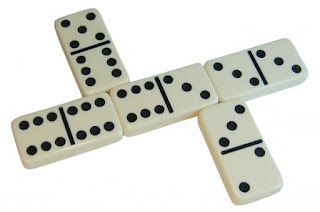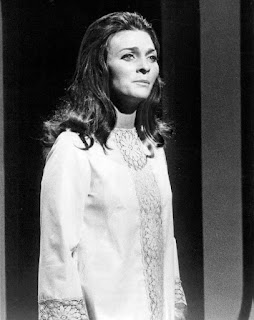Web Page No 2284
29th July
2016
Top Picture: Tiddly Winks
Second Picture: Snakes and
Ladders
Third Picture: Ludo
Forth Picture: Dominos
A
Wet Sunday Afternoon
What do you remember about a wet Sunday at home when you were a child ? Nowhere to go, nothing to do, is that right? Then it was time for the parlour games and there were dozens, so let us look at a few.
Firstly one of the oldest must be Tiddly Winks an indoor game played on a flat felt
mat with sets of small discs called "winks", a pot, which is the
target, and a collection of squidgers, which are also discs. Players use a
squidger to shoot a wink into the wink.
The objective of the game was more winks into the pot than your opponents.
Tiddlywinks is sometimes considered a simpleminded, frivolous children's game,
rather than a strategic, adult game However,
the modern competitive adult game of tiddlywinks made a strong comeback at the University of
Cambridge in 1955 when it held
a series of competitions. The game was invented in 1888.
Snakes and Ladders: This is based on an ancient Indian board game and is regarded today as a
worldwide classic. It is played
between two or more players on a gameboard having
numbered, gridded squares. A number of "ladders" and
"snakes" are pictured on the board, each connecting two specific
board squares. The object of the game is to navigate one's game piece,
according to dice rolls, from the start
(bottom square) to the finish (top square), helped or hindered by ladders and
snakes respectively. The game is a simple race contest based on sheer luck, and
is popular with young children. The
historic version had root in morality lessons, where a player's progression up
the board represented a life journey complicated by virtues (ladders) and vices
(snakes). A commercial modern updated version without the morality lessons was
produced by Milton Bradley is named Chutes and Ladders.
Ludo from Latin ludo, "I play" is a board game for two to four players, in which the players race their four tokens from start to finish according to dice rolls. Like other cross and circle
games, Ludo is
derived from the Indian game pachisi, but simpler. The game
and its variants are popular in many countries and under various names.
In North America, the game is sold under the brand name Parcheesi and there are other variations of the game which are sold
are sold under the brand names Sorry!, Aggravation, and Trouble.
In Germany, this game is called "Mensch
ärgere dich nicht" which means
"Man, don't get irritated", and has equivalent names in Bulgarian,
Croatian, Czech, Dutch, Polish, Russian, Serbian, Slovak, and Slovene. In Iran,
the game is called "منچ" [Mench] which is probably an adaptation of
the German name. In Polish it is more commonly referred to as Chińczyk ("The Chine(s)e").
In Estonia, it is called "Reis ümber
maailma" (Trip around the world).
In Greece, the game is called "Γκρινιάρης"
("Grumbler") referring to typical player behaviour.
In Malaysia and Singapore, it is called "飞机棋".
In Macedonia, the game is called "Не лути се
човеку", meaning "Don't get angry, man".
In Sweden it is known as "Fia", a name
derived from the Latin word fiat which means "so be it!" but
in Denmark and Norway the game is known as Ludo.
In Vietnam, it is called "Cờ cá ngựa".
In Spain it is called "Parchís" and in
Catalonia "Parxís" and is a very popular family board game.
There and you thought is was a simple child’s game!!!!
Chinese Checkers (US and Canadian spelling) or Chinese chequers (UK spelling) is a board game of German origin
(named "Sternhalma") which can be played by two, three, four, or six
people, playing individually or with partners. The game is a modern and simplified
variation of the US game Halma.
The objective is to
be first to race one's pieces across the hexagram-shaped board into "home"—the
corner of the star opposite one's starting corner—using single-step moves or
moves that jump over other pieces. The remaining players continue the game to
establish second-, third-, fourth-, fifth-, and last-place finishers. Like other skill-based games, Chinese
Checkers involves strategy. The rules are
simple, so even young children can play.
Despite its name, the
game is not a variation of checkers, nor did it originate in China or any part
of Asia. The game was invented in Germany in 1892 under the name
"Stern-Halma" as a variation of the older American game Halma.
The "Stern" (German for star)
refers to the board's star shape (in contrast to the square board used in
Halma). The name "Chinese Checkers" originated in the United States
as a marketing scheme by Bill and Jack Pressman in 1928. The Pressman
Company’s game was originally
called "Hop Ching Checkers". Strangely the game was introduced to
Chinese-speaking regions mostly by the Japanese.
Then if all else failed it was out with the
Dominos! You could always tumble them!
Keep in touch
Peter
You Write:
News and Views:
On this day 29th July 1960-1965
On 29/07/1960 the number one single was Good Timin' - Jimmy Jones and the number
one album was South Pacific Soundtrack. The top rated
TV show was Rawhide (ITV) and the box office smash was Psycho. A pound of today's money was worth
£13.68 and Burnley were on the way to becoming the Season's Division 1
champions.
On 29/07/1961 the number one single was Temptation - Everly
Brothers and the number one album was South Pacific Soundtrack. The top rated
TV show was No Hiding Place (AR) and the box office smash was One Hundred and One Dalmations. A pound of
today's money was worth £13.25 and Tottenham Hotspur were on the way to
becoming the Season's Division 1 champions.
On 29/07/1962 the number one single was I Can't Stop Loving You -
Ray Charles and the number one album was West Side Story Soundtrack.
The top rated TV show was Coronation Street (Granada) and the box
office smash was Lawrence of Arabia. A pound of
today's money was worth £12.89 and Ipswich Town were on the way to becoming the
Season's Division 1 champions.
On 29/07/1963 the number one single was
Confessin' - Frank Ifield and the number one album was Please Please Me - The
Beatles. The top rated TV show was Coronation Street (Granada) and the box
office smash was The Great Escape. A pound of today's money was worth £12.64
and Everton were on the way to becoming the Season's Division 1 champions.
On 29/07/1965 the number one single was Mr Tambourine Man - Byrds and the number
one album was The Sound of Music Soundtrack. The top rated TV show was Coronation Street (Granada) and the box
office smash was The Sound of Music. A pound of today's money was worth £11.69
and Manchester United were on the way to becoming the Season's Division 1
champions.













